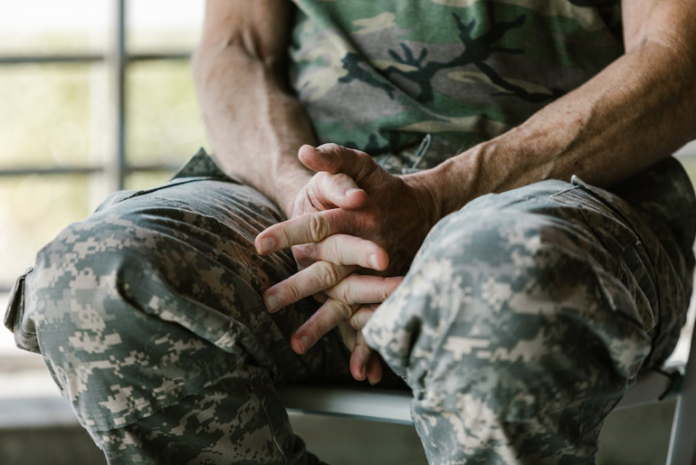War is a terrible, traumatic, and bloody business. History has no shortage of examples of this fact: World War 2’s D-Day, the Civil War’s Battle of Gettysburg, the American Revolution’s Battle of Bunker Hill. Whatever the time, whatever the age, war has been there, and it has left its mark on the world which it fights and on the people who fight under it.
Wartime is hard on everyone, but none more so than the ones who fight through it. Young or old, returners or newcomers, the field of battle is nothing short of a hellish landscape to any who’ve participated in it. And sometimes, unfortunately so, that hell is a part of those who partook in it, even if they are no longer physically there.
Veterans are often hailed as heroes for their service to their country, but many of them bear the unseen scars of their time in the military. Post-traumatic stress disorder (PTSD) is a serious issue that affects a significant portion of veterans, impacting their daily lives and relationships. In this article, we’ll delve into the complexities of PTSD among veterans, how it affects them, and how we can offer support and understanding.
The Reality of PTSD Among Veterans
The nature of military service exposes individuals to high-stress and often traumatic situations. Veterans may have experienced combat, witnessed the loss of comrades, or been in life-threatening scenarios. These experiences can lead to the development of PTSD, manifesting in a range of symptoms such as flashbacks, nightmares, hypervigilance, and emotional numbness.
You can find more examples of symptoms and even triggers of PTSD on sites like the one listed here: https://www.hopkinsmedicine.org/
Unfortunately, there is a prevailing stigma surrounding mental health in the military community, which can prevent veterans from seeking the support they need. There may also be practical barriers such as limited access to mental health services or concerns about the impact on their military career.
Understanding and Breaking Down the Misconceptions of PTSD
It’s crucial to dispel the misconception that experiencing PTSD is a sign of weakness. It is a natural reaction to unnatural and distressing events. Veterans with PTSD are not weak; they are individuals who have endured significant challenges in service to their country.
Unfortunately, this is not a temporary condition that fades away with time. It can have a profound and lasting impact on a veteran’s life, affecting their relationships, work, and overall well-being. Understanding the chronic nature of PTSD is essential in providing meaningful support. You can check here to know how to identify trauma triggers.
How to Make a Difference in Treating PTSD
Listening without judgment and providing spaces where veterans feel safe to share their experiences is a vital form of support. Opening up about traumatic events can be incredibly challenging, and offering a compassionate and understanding ear can make a world of difference.
Ensuring that veterans have access to these safe places, along with other specialized PTSD treatment and resources is also crucial. This may involve advocating for improved mental health services within the veteran community and promoting awareness of available support options.
Establishing a strong support network within the community can help combat the sense of isolation that veterans with PTSD may experience. From organized veteran support groups to simple acts of kindness, fostering a community that values and supports its veterans is invaluable.
It’s important to know that there are places dedicated to help combating the effects and trauma of PTSD. The Enhancement Center is just one of many organizations who want to help veterans live their lives with as little trauma and pain as is possible, no matter the odds.
The Road to Recovery
Recovery from PTSD is a unique and nonlinear journey, and it’s essential to acknowledge the progress and setbacks that individuals may encounter along the way. Nurturing a supportive and compassionate environment, free of judgment and stigma, is integral to fostering a sense of safety and empowerment for those navigating the effects of PTSD. By recognizing the strength and courage it takes to confront and manage PTSD, we can contribute to a more inclusive and understanding society.

Conclusion
Supporting veterans with PTSD demands a collective effort to break down stigma, provide understanding, and ensure access to essential resources. By acknowledging the realities of PTSD, dispelling misconceptions, and offering empathy and support, we can honor the service of veterans by helping them navigate the challenges they face beyond the battlefield. After everything these brave men and women have sacrificed, shouldn’t something be given back to them in return? Whether it’s an open ear, or an understanding mind, everyone should always help their fellow man, and someone in uniform especially, is no exception. Let’s stand together in solidarity with those who have served and continue to serve our country, ensuring that they receive the care and understanding they deserve.













